Nitrogen Reclassification Will Put Emphasis On Innovative Systems
The Cape Cod Chronicle
By: Bronwen Walsh
August 31, 2022

BREWSTER – Cape homeowners need to pick up the pace and speed up wastewater treatment by implementing innovative alternative septic systems in areas not conducive to sewering.
That’s what Zenas Crocker, executive director of the Barnstable Clean Water Coalition (BCWC, formerly Three Bays Preservation) told Brewster Ponds Coalition (BPC) annual meeting attendees on Aug. 20.
In particular, Popponessett, Waquoit and Three Bays are struggling to reduce nitrogen pollution, Crocker said, while local ponds suffer phosphorus overload due to layer-upon-layer of decaying alum treatments designed to reduce cyanobacteria.
How to solve those problems?
“Treat what we can control,” Crocker said, including the septic waste, stormwater runoff and fertilizer that are put into the groundwater and, ultimately, the Cape’s sole-source aquifer.
Brewster has some of the best-quality drinking water on the Cape, Crocker said, but “you need to test, test, test in order to understand the problem.”
Crocker shared BCWC’s mitigation efforts at Shubael Pond in Barnstable, which he said would be of particular interest to BPC members.
Innovative Systems In Brewster
To date, there are 39 residential innovative alternative (I/A) septic systems operating in Brewster, Emily Olmsted told the Brewster Board of Health earlier last week.
Those properties either have an onsite well or are located in an estuary protection area.
A project assistant at a Barnstable County testing lab that tracks I/A system compliance, Olmsted said the Cape has gone above and beyond with requiring all I/A systems to ensure its embayments are protected.
“Most I/As have general-use approval for nitrogen reduction” at 19 or 25 mg per liter, she said. About 50 percent of Brewster’s I/A systems meet the 19 mg/L median for total nitrogen (TN), the sum of all three forms of nitrogen, but all are meeting the 30 mg/L median for nitrate and nitrite.
The state Department of Environmental Protection (DEP) plans to reclassify nitrogen-sensitive areas, and new regulations are forthcoming, Olmsted said.
Capewide, 30 watersheds likely will fall into this new designation. Residents in those watersheds will either have to abide by a new watershed permit or install an I/A system within five years of a failing Title V septic system, she said.
“If that is the case, we’re probably going to expect to see a lot more I/A systems and, possibly, new requirements from DEP as far as their sampling,” Olmsted said.
“It does not appear that too many of [Brewster’s] systems are meeting the median 19 mg/L…but most (87 to 90 percent) are meeting the minimum for BOD5 and cBOD5, which is good,” she said. “Most of your systems…do perform under that 30 mg/L for total suspended solids.
“You could consider additional sampling for all I/A systems that go in,” she added, suggesting quarterly sampling for the first two years of operating a new I/A system.
If testing results indicate an I/A system is out of compliance, Olmsted will notify residents by registered mail. The property owner then has 15 to 20 days to contact their operations and maintenance provider, and 20 to 25 days to bring their system into compliance.
Meanwhile, a current case before the board of health involving new nitrogen mitigation standards was continued into September.
John Casale wants to increase the number of bedrooms on his two residential lots from three to four. But he’s tangled in more stringent zoning guidelines designed to protect nitrogen-sensitive areas like Pleasant Bay.
It will cost about $1,500 to get an engineering firm to test his well water and perform nitrogen-loading calculations, not to mention the scheduling backlog to upgrade to an I/A septic system, Casale testified.
“We are heading into a new era,” said Annette Graczewski, the new health board chair. “The threshold for nitrogen removal is likely to be lowered to under 10mg/L.”
Graczewski and Health Director Amy von Horn attended the OneCape Summit held earlier this month in Falmouth. The board of health is next scheduled to meet on Wednesday, Sept. 7.
Nitrogen Reclassification Will Put Emphasis On Innovative Systems – The Cape Cod Chronicle
